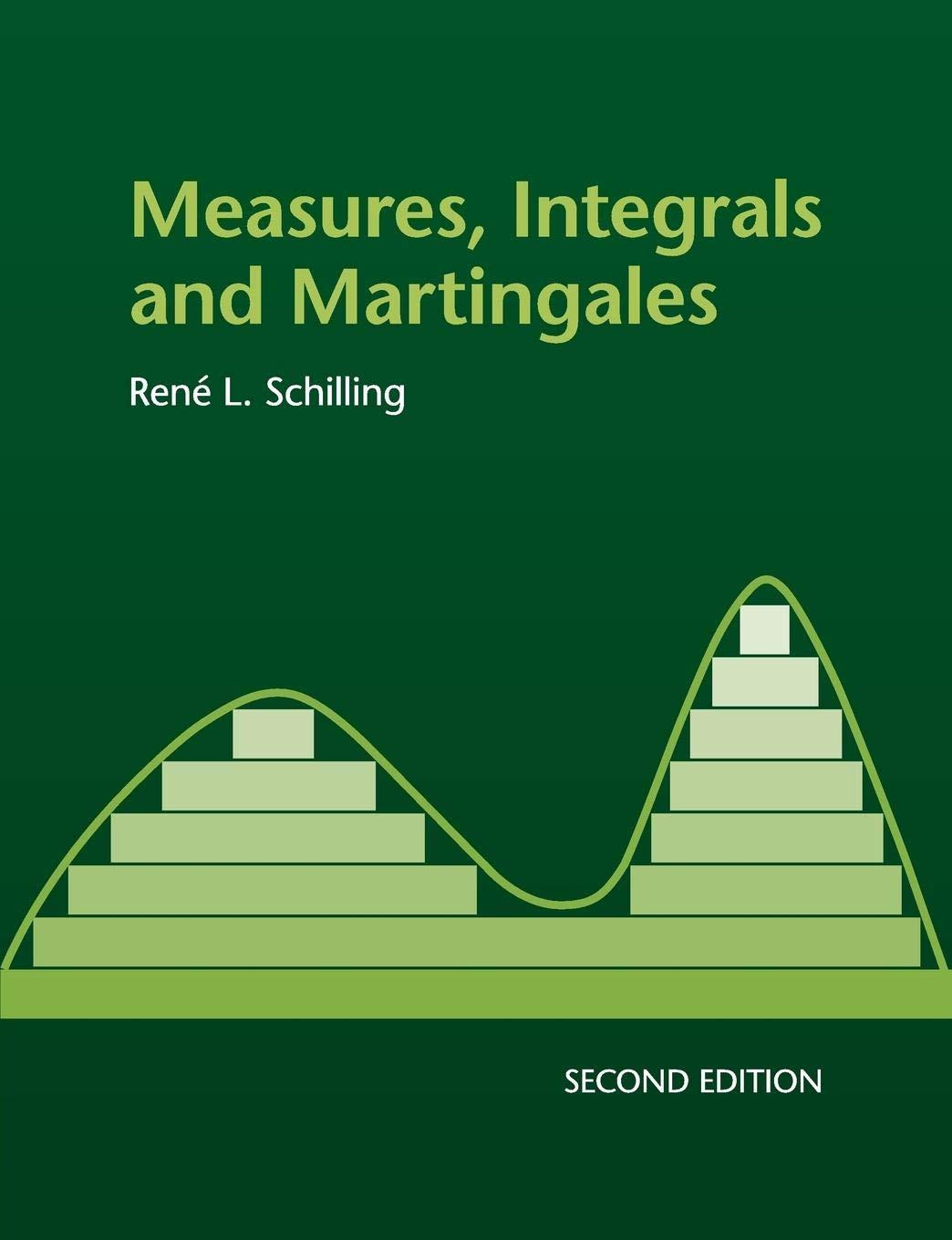(i) Prove, without using Vitali's convergence theorem, the following theorem. Theorem (bounded convergence). Let ((X, mathscr{A}, mu))...
Question:
(i) Prove, without using Vitali's convergence theorem, the following theorem.
Theorem (bounded convergence). Let \((X, \mathscr{A}, \mu)\) be a measure space, let \(A \in \mathscr{A}\) be a set with \(\mu(A)<\infty\) and let \(\left(u_{n}ight)_{n \in \mathbb{N}}\) be a sequence of measurable functions. Suppose that all \(u_{n}\) vanish on \(A^{c}\), that \(\left|u_{n}ight| \leqslant C\) for all \(n \in \mathbb{N}\) and some constant \(C>0\) and that \(u_{n} \stackrel{\mu}{\longrightarrow} u\). Then \(L^{1}-\lim _{n} u_{n}=u\).
(ii) Use one-dimensional Lebesgue measure and the sequence \(u_{n}=\mathbb{1}_{[n, n+1)}\) to show that the assumption \(\mu(A)<\infty\) is really needed in (i).
(iii) As \(L^{1}\)-limit the function \(u\) is unique but, as we have seen in Problem 22.6 , this is not the case for limits in measure. Why does the uniqueness of the limit in (i) not contradict Problem 22.6 ?
Data from problem 22.6
Let \((X, \mathscr{A}, \mu)\) be a measure space which is not \(\sigma\)-finite. Construct an example of a sequence \(\left(u_{n}ight)_{n \in \mathbb{N}} \subset \mathcal{M}(\mathscr{A})\) which converges in measure but whose limit is not unique. Can this happen in a \(\sigma\)-finite measure space?
[ let \(X_{\sigma f}:=\bigcup\{F: \mu(F)<\infty\}\) be the \(\sigma\)-finite part of \(X\). Show that \(X \backslash X_{\sigma f} eq \emptyset\), that every measurable \(E \subset X \backslash X_{\sigma f}\) satisfies \(\mu(E)=\infty\) and that we can change every limit of \(\left(u_{n}ight)_{n \in \mathbb{N}}\) outside \(X_{\sigma f}\).]
Step by Step Answer:






